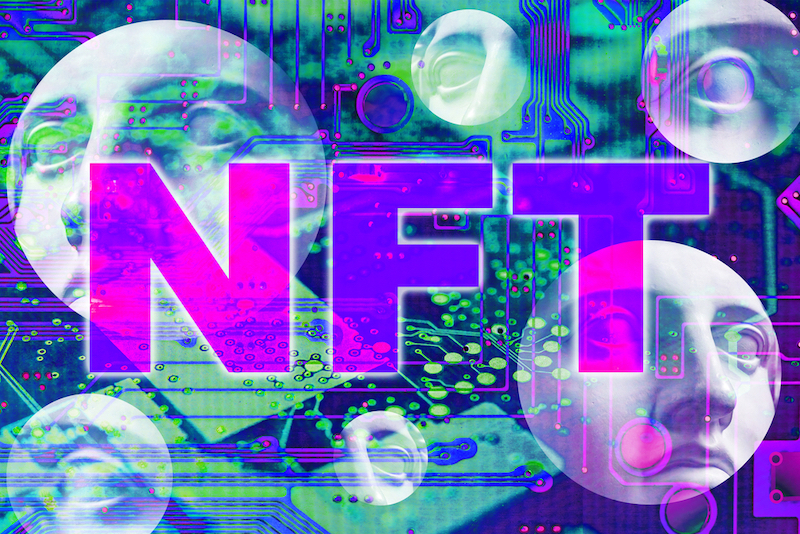With the emergence of cryptocurrency-based products, a growing number of artists and content creators are opting to sell their work as non-fungible tokens (NFTs). With cryptocurrency already being hard enough to navigate through, NFTs can be confusing to grasp. However, the notion of NFTs is not as daunting as it may seem and achieving a basic understanding of how they work will go a long way in ascertaining why they are becoming so popular.
This is where a company like Lexyom comes in. Lexyom is, according to the company, “the first online legal platform of its kind crafted by super lawyers, geeky developers, and excellent executors.” Lexyom, a digital legal start-up, has developed a foundation of experts from the best law firms in the Arab world, including Lebanon and the United Arab Emirates, to offer their clients top-notch online legal consultations and legal solutions ranging from instant document generation all the way up to smart company formation. They boast a highly secure Dashboard service that allows users to log on and create legal agreements in minutes, including NDAs, Shareholder Agreements, and Independent Contractor Agreements.
When it comes to legal solutions related to technology, they are undoubtedly one of the most reliable to get the job done. Their mission relies on making it easier for people to understand legal matters. Their services are the perfect place to get information about NFTs and ensure that you and your company are protected when entering the crypto-verse.
First, let’s get on the same page about NFTs. NFTs or Non-Fungible Tokens are a type of digital currency that cannot be replaced or traded for anything of the same value. Unlike regular money, they are not fungible. Two fifty-dollar bills have the same value as a one-hundred-dollar bill. They can be exchanged. On the other hand, Van Gogh’s Starry Night is a unique piece of art. Only one version exists: it cannot be exchanged for something of the same value because it is one-of-a-kind.

The only way to purchase an NFT is through cryptocurrency. More specifically, Ethereum. The Ethereum blockchain records ownership of the NFTs and makes it public for everyone to see. For instance, even though the digital artwork can be copied a million times, only one original version exists, owned by one person.
NFTs and Ethereum are two technologies that address some of the current issues with the internet. As the world becomes more digital, tangible attributes like scarcity, uniqueness, and evidence of ownership must be replicated. NFTs give the legal rights to the digital item as well as a tamper-resistant certificate of authenticity. Ethereum is decentralized, thus it is secure. Manipulating or stealing the data is almost impossible after the transaction is completed.
NFTs grant content creators access to a worldwide market so they can sell their work anywhere. Furthermore, they can retain ownership over their work and seek resale royalties on their own. They also hold control over its sale. The NFT’s owner can choose to sell it any way they want, without the need for an intermediate. No third party can impose any rules.
NFT examples can range from music, art, signatures, memes, and legal documents, among other categories. According to DappRadar, a business that collects statistics on crypto-based applications, the market’s transaction volume topped $10 billion in the third quarter of 2021.
Considering how fast this new trend is growing, it is important for content creators to seek legal advice amid the NFT investment craze. Most people seek clarity on the legal issues attached to these new digital assets. This ranges from intellectual property and smart contracts to securities law.
While the excitement surrounding NFTs has grown significantly, their legal treatment continues to evolve and has also remained unsettled. Lexyom’s team introduces you to some of the legal issues you might face regarding NFTs:
Data Hosting and Storage: An NFT is typically stored on the blockchain as a separate entity and has information on where the digital asset is located. Its connection to the digital asset is through a link. If the server hosting the digital asset is offline, the link will break and there will be no way to back up the NFT. Hence, the NFT becomes worthless. Since the NFT is unique, its owner cannot be replaced, the NFT purchaser might be left without recourse. This can lead to business interruptions, regulatory record-keeping violations, and loss of data.

Royalties: “Smart contracts” written into the code of NFTs are designed to allow for the distribution of funds for the payment of royalties to the creator each time the work is resold. However, they can only be used if the work is resold through the same platform. Although US law does not recognize the rights related to creative works, its law does not provide for unpaid resale royalties. This is in contrast to other countries, such as the UK and the EU, which do.
Data Protection Laws: Some data protection laws give people the right to correct or delete their personal data, but the immutable nature of blockchain technology makes it harder to execute this right. In addition, data protection laws sometimes allow individuals to correct errors regarding their personal data, which is impossible to do through blockchain technology that makes it impossible to enforce these rights. This means that NFTs that include personal information might violate data protection laws.
Intellectual Property Rights: Many NFT participants are unaware of the legal restrictions on copyrighted work. This leads to potential liability infringement. For instance, an individual purchasing an NFT might assume that the art is associated with the NFT. However, in reality, the original creator retains the exclusive right to modify, distribute, and publicly display the art (unless specifically granted to someone else). The holder of the NFT will only be receiving a token and the right to use the copyrighted art associated with it for personal use. A buyer who believes that the rights attached to an artwork were not properly valued may create litigation liability for the NFT seller under a variety of legal theories. This person could argue that the value of the artwork was lost due to the misrepresentation.
Hence, the need for experts’ advices arises when it comes to trading. Looking to know more about smart contracts, NFTs, and crypto, reach out to Lexyom and they will make sure to protect you from any legal problems you might face. Lexyom’s creative strategies combine the skills of expert attorneys and web developers to provide you with the simplest, most efficient gateways to meet your legal needs and avoid legal issues related to NFTs.
NFTs are surrounded by a huge amount of digital and legal uncertainty. The law hasn’t caught up with their fast growth yet. It may only be a matter of time before NFTs and digital art become the subject of legal challenges. However, Lexyom’s team works relentlessly to keep up with the latest updates to break all the uncertainties regarding the matter. Whether you are worried about instances such as data storage and protection, their (virtual) doors are always open.
To book a consultation or sign-up for your secure Dashboard visit https://app.lexyom.com/ and experience Legal Made Easy™!




